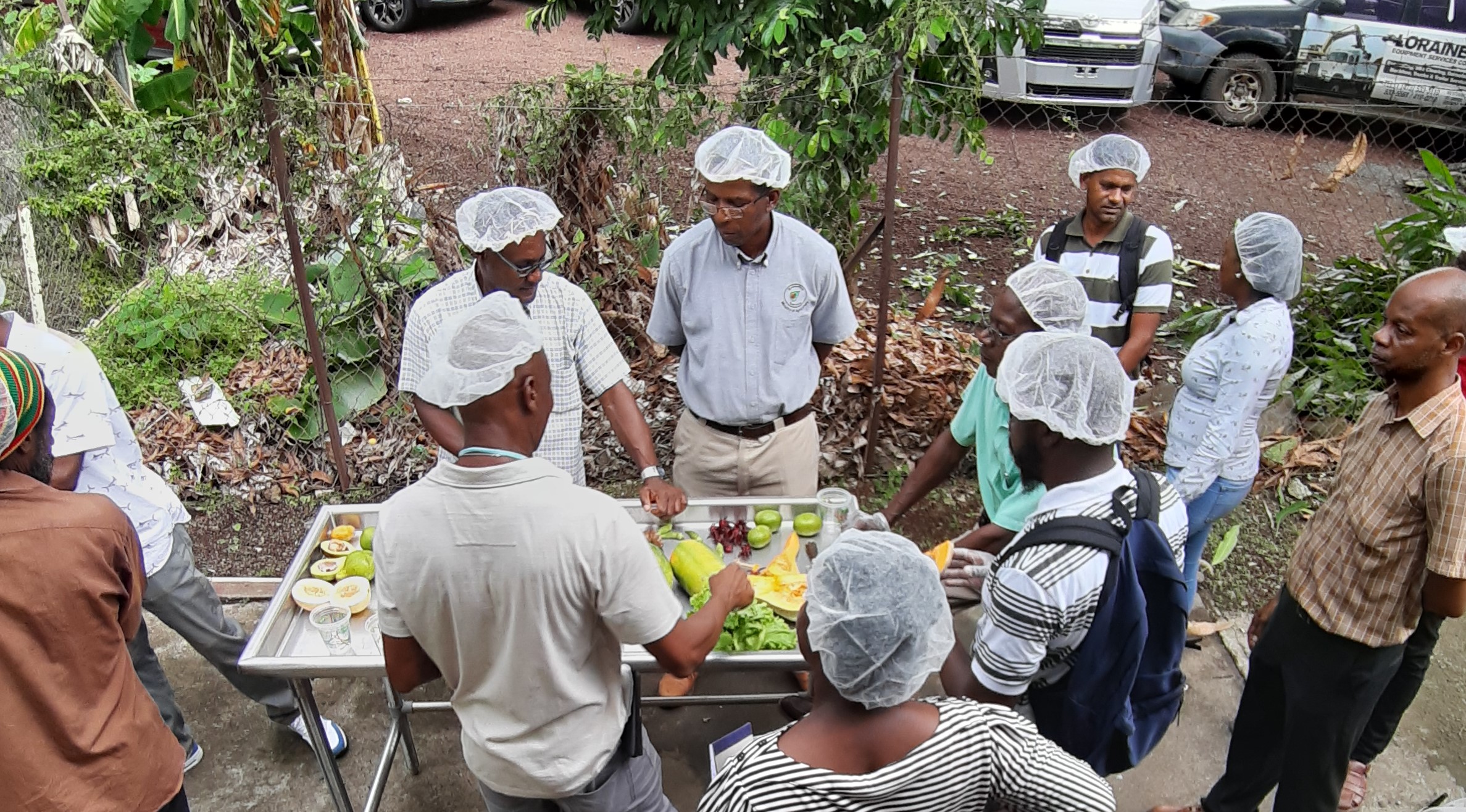Inspection of fresh produce is a mandatory process conducted by governmental authorities or other agencies to ensure a product’s wholesomeness, safety and adherence to regulations.

Saint George, Grenada, November 25 (IICA) Grenada fresh produce inspectors strengthened their capacity to conduct effective inspection work through a two-day Workshop held on November 20-21, 2019 which the IICA Grenada Delegation facilitated.
Through a request from the Grenada Bureau of Standards and in collaboration with the Ministry of Agriculture and the Marketing and National Importing Board, 18 inspectors from those institutions strengthened they capacity in inspection work.
Inspection of fresh produce is a mandatory process conducted by governmental authorities or other agencies to ensure a product’s wholesomeness, safety and adherence to regulations. The training of the inspectors was one of the pre-requisites for the effective enforcement of the Grenada Fresh Produce Act.
During his remarks at the opening of the Workshop, the Permanent Secretary in the Ministry of Trade, Industry, Cooperatives and CARICOM Affairs, Aaron Francois; alluded to the high food import bill compared to the low income for agricultural exports.
He further implored on the inspectors to make good on the training and put it to work to help facilitate trade in fresh produce. Similar sentiments were echoed by the Director of the Bureau of Standards, Robert Medford, and the Head of the Ministry of Agriculture Pest Management Unit, Thaddeaus Peters.
Derek Charles, specialist at the IICA Grenada Delegation, facilitated the Workshop and emphasized that “The inspectors must undergo appropriate and regular training to enable them to undertake conformity inspection. That accurate inspection increases the value of the produce offered for sale by ensuring it meets customer’s standards”.
The class, quality and the measurements of quality attributes of fresh produce were highlighted because this enabled the inspectors to appreciate the types of defects and the possible causes of those defects that can affect the wholesomeness and safety of the produce.
The practical session focused on using the specifications and tools to conduct inspection on fresh produce. Inspectors learned how to interrupt the specifications and apply them to the various defects and how to use some of the inspection tools available to enhance the accuracy of their work.
The Bureau of Standards and the Ministry of Agriculture will continue to strengthen the capacity of inspectors by engaging the private sector and having them trained to the acceptable standard for conducting effective inspection work.
More information:
Derek Charles, specialist at the IICA Grenada Delegation











